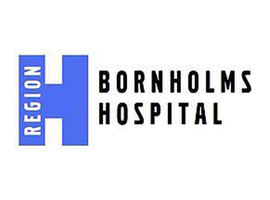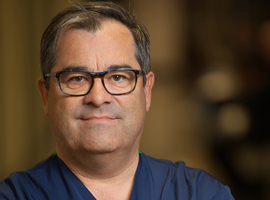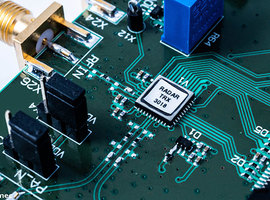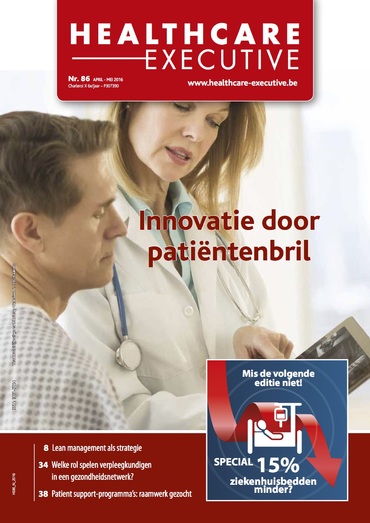Hierbij de volledige versie (in het Engels) van de visietekst van de anesthesisten in opleiding.
BAT Vision and Aims
2017-2018
Abstract
In the ‘BAT Vision and Aims’ document, the BAT vision and aims for the stated academic year are clearly described and formulated. The document is updated yearly and approved by all members in the second BAT meeting of the year. The BAT is an independent organisation that represents the interests of the Belgian anesthesia trainees in different institutions on different levels, and was founded in 2017.
Introduction
Objective: to clarify the vision and aims of the Belgian Anesthesia Trainee Council (BAT).
Drawn up on: 25-03-2018
Approval date: 30-05-2018
Revision date: 08-2018
This manuscript represents the first version of the vision and aims of the BAT. The vision points will be discussed yearly on the first meeting of the academic year in august. Accomplished or out-dated points will be removed and additional points added according to the vision of the actual BAT members.
As such this is an up-to-date document representing the vision of all BAT members.
It has to be noted that the BAT is an independent organisation that represents the interests of the Belgian anesthesia trainees in different institutions on different levels. All BAT members act voluntarily and without financial compensation to improve the position of Belgian anesthesia trainees by elaborating the BAT vision points and adhering to the BAT aims.
BAT vision and aims, overview:
- Communication
- Further improvement of the Belgian anesthesia education
- Revalue the Belgian anesthesia training
- BAT vision on Belgian healthcare reorganisation
- overview of amount of yearly Belgian anesthesia trainee positions
- division of duties head of department and trainee representative staff member
- Organising inter-university meetings to promote science and collegiality
BAT vision and aims:
- Communication
The BAT wishes to provide a platform of communication about matters concerning Belgian anesthesia training. The communication will take place on different levels in different directions.
- The Belgian anesthesia trainee
- Receiving and answering questions, remarks, proposals and grievances.
- Informing Belgian anesthesia trainees on a national level about training related decisions.
- Clarifying the exact requirements for making a yearly medical logs document and eventually for graduating as an anesthetist-reanimator in Belgium
- The university and peripheral anesthesia training centres.
- Representation through local anesthesia trainee councils.
- The Society of Anesthesia and Reanimation in Belgium (SARB)
- Inform the SARB about the BAT vision and aims.
- One BAT member will attend the SARB board meetings.
- The Belgian professional society for anesthesia (APSAR/BSAR)
- Inform the APSAR/BSAR about the BAT vision and aims.
- Two BAT members will attend the BSAR board meetings.
- The European Society of Anesthesia (ESA)
- Representation of the Belgian anesthesia trainees at a European level through an elected representative in the ESA trainee council.
- Maintain contact with other healthcare related Belgian and European institutions (Orde van Artsen/Ordre des Médecins, ministry of healthcare, National and/or regional council of medical trainees, local trainee councils, Belgian medical doctor syndicates)
We will represent the Belgian anesthesia trainees in all aforementioned institutions.
The BAT also plans to provide this communication by email anesthesiatraineesbelgium@gmail.com), through our website (www.anesthesia-trainees.be) and social media (facebook®, Linkedin®,).
- Further improvement of Belgian anesthesia education
The BAT wishes to further improve the Belgian anesthesia training on a national scale by promoting the implementation of the following in anesthesia training:
- Simulation training
- Advanced Life Support course
- Simulation training:
Aim: To make simulation training a mandatory part of the anesthesia training program for all Belgian trainees. The BAT aims to facilitate the communication between Belgian academic institutions to organise simulation trainings.
Background: Simulation training is being organised by the Belgian anesthesia departments of different Belgian universities. This consists of technical skill simulation (such as fiberoptic intubation, central venous line placement on dummies, etc) and non-technical skills simulation. Cooperation between Belgian centres could improve simulation training quality and uniformity. Associated reductions in costs could provide even more simulation training sessions for Belgian anesthesia trainees.
We plea for implementing yearly simulation training for every anesthesia trainee.
Note: In Flanders, simulation education will be a part of the mandatory Manama, however, this is not the case in Wallonia.
- Advanced Life Support course (ALS)
Aim: To ensure that EVERY anesthesia trainee can attend an ALS course as part of their education.
Background: the ability to reanimate is an essential skill for an anesthetist-reanimator, although it is not integrated in the 5-year training program. Attending an ALS course is considered necessary to graduate, but courses are expensive and unfortunately rather rare. The financial burden of this course should not be carried by the trainee him/herself but by their respective university or by a national organization. This national organization could bundle all universities and training hospitals and organize the ALS course itself, preferably in cooperation with the emergency medicine training services.
Note: We understand the ERC is in control of organizing all certified ALS courses in Europe, but it should be possible to organize these courses in cooperation with the ERC. Aside from that, we believe that it is more important for every trainee to have sufficient ALS experience with or without a certificate. National courses without cooperation with the ERC could be a feasible alternative.
- Revalue the Belgian anesthesia training
Aim: To ensure a full basic training in all aspects of anesthesia, without the necessity of subsequent fellowships. An additional fellowship can be obtained to subspecialize according to personal interest or job offer requirements.
Background: In other specialities (e.g. surgery), trainees aren’t always properly trained to work independently after their residency. In these specialities, additional fellowships are often necessary to ensure proper functioning.
Note: as a minimal requirement for a basic training in anesthesia we state the following:
- Preoperative skills
- Knowledge of the preoperative management and preoperative consultation of a patient undergoing surgery.
- A rotation in the emergency department, with pre hospital interventions. In Flanders this will be a mandatory part of the basic training. We strongly suggest equality in training between Flanders and Wallonia.
- Perioperative skills
- Basic knowledge of anesthesia for all types of surgery and intervention (except cardiac surgery) for adult as well as pediatric patients. A notion of cardiac anesthesia should be obtained. Specific technical skills are summarized further in the text.
- Simulation and resuscitation training should be a major part of every residents training (cf. 2.)
- Postoperative skills
- Management of patients in the recovery room.
- Knowledge of management of acute postoperative pain and experience with acute postoperative pain services.
- A rotation in the (postoperative or mixed postoperative and medical) intensive care unit.
- A rotation in the pain clinic. In Flanders this will be a mandatory part of the basic training. We strongly suggest equality in training between Flanders and Wallonia.
- Specific Technical skills
- Single lung ventilation and thoracic surgery airway management.
- At least 25 cases of single lung ventilation, regardless of the lung isolation technique.
- Echography in all its useful forms for the anesthetist (vascular access – locoregional anesthesia – basic echocardiography)
- Locoregional anesthesia.
- At least 25 of each of the 4 ‘basic’ nerve blocks (Popliteal, Femoral, Axillary and Interscalene) should be obtained after 5 years of training.
- ALS training. This should be basic training for every resident. A yearly refreshment of resuscitation skills (possibly through simulation training) is strongly suggested.
- Single lung ventilation and thoracic surgery airway management.
- BAT vision on Belgian healthcare organisation
Aim: To involve trainees in healthcare organisation decisions.
Background: As future anesthesiologists we want to be involved in current and future healthcare related affairs and reforms. We will represent the Belgian anesthesia trainees directly but also through cooperation with the national anesthesia organizations, the SARB and the APSAR/BSAR
Note: concerning the latest evolutions in Belgian healthcare reforms, the BAT wishes to support the opinion and vision of the SARB and APSAR/BSAR as formulated in the “Staten-Generaal” of the 7th of October 2017.
- Overview of amount of yearly Belgian anesthesia trainee positions
Aim: To inform the Belgian anesthesia trainee about the process of determining the number of anesthesia trainees, and try to guarantee a job security for every trainee after a 5 year training program. When deemed necessary, the BAT will plea to the relevant authorities to reduce the amount of accepted trainees.
Background: As Belgian anesthesia trainees we have no clue about the amount of required future anesthesiologists in Belgium. The possibility exists that more trainees are being accepted than the available anesthesia positions, especially with the reforms in mind.
- Division of duties head of department and trainee representative staff member
Aim: To ensure the main objective of a traineeship is education, which sometimes conflicts with the department’s objectives.
Background: As the head of department is involved in hospital and departmental organization, he or she might not always decide in favour of the anesthesia trainee due to conflict of interest. This might result in less teaching or replacement of scientific working time by additional clinical work. It is the opinion of the BAT that each institution should appoint a staff member or committee representing trainees. This staff member or committee should have sufficient power and its status should be clearly described to prioritize trainee education over departmental organization. The creation of such function in each institution will favour the revaluation of the anesthesia trainee program.
- Organisation of inter-university scientific meeting
Aim: To organise a yearly scientific meeting by and for the anesthesia trainees, including poster presentations and hands-on workshops.
Background: Trainees of other specialities have successfully created national meetings where trainees can present abstracts and listen to speakers of their choosing. This would be an opportunity to enquire the participating trainees concerning problems with their education. Lastly, this will be an excellent opportunity to get to know our peers from other universities and to organize practical anesthesia training.















